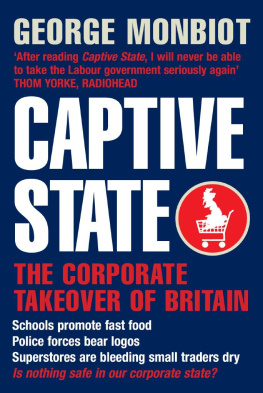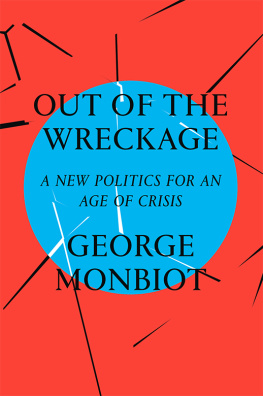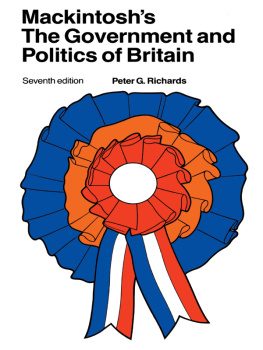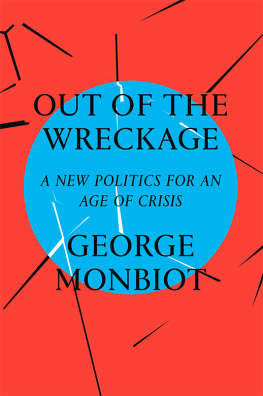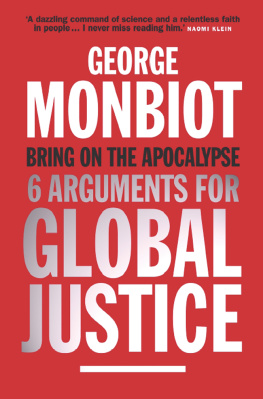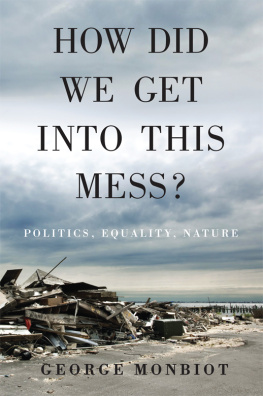
A note on the text
Where I have used the present tense, this indicates the most up-to-date information available at the time of writing. Some of the details may have changed between completion of the final draft and publication. Throughout the text, money is as valued in the year given, unless I specify real terms.
Contents
The Skye Bridge Mystery
Hospital Cases The Corporate Takeover of the National Health Service
Breaking Point The Smashing of Southampton
How to Buy Planning Permission The Department of the Environments Conflicts of Interest
Economic Cleansing How the Superstores Conquered Britain
The Fat Cats Directory
Monsantos Magic Potion
A Padlock on the Food Chain
Silent Science The Corporate Takeover of the Universities
Government in Exile The Corporate Bid for World Domination
A Troublemakers Charter
Introduction
The Christmas Liberation Front first struck in December 1997. Manchesters celebrations had been sponsored that year by Renault, and the generous donor, in a surfeit of seasonal spirit, had attached its own logo to the top of the municipal Christmas tree. In the dead of night a person or persons unknown climbed the tree, removed the Renault diamond and replaced it with a gold star. Christmas, their organization declared, had been restored to the people.
Manchesters seditious guardians of the public realm are not alone in their efforts to prevent Christmas from becoming a corporate acquisition. In 1998, Westminster City Council sought to prevent the Regent Street Association from using Britains most celebrated display of Christmas lights to reveal that this was The season to be Tangod: a soft drinks manufacturer had paid for the display. But, the council realized, the association had applied for planning permission so late that if this exhibition were banned there would be no lights on Regent Street at all. The following year, in the hope of averting similar manifestations of excessive generosity, the council helped pay for the lights
There is, it seems, hardly an emblem of public life in Britain which has not been rebranded. A firm called Mediasign, whose sister company rejoices in the name of Bribex, puts local authorities in touch with businesses prepared to sponsor their street signs. The companies replace signs which are damaged or missing, and pay a fee to the council. In return, their logo appears beside the name of the street. Derby, Redcar, Walsall and Birmingham are among the early beneficiaries.
Following an act of parliament passed in 1996, the police have been permitted to accept gifts of money, and gifts or loans of other property, on such terms as appear to the authority to be appropriate. Villains apprehended by its rider will need look no further for legal assistance than the advertisement on the fairing.
Britains millennium celebrations testified to a peculiar was financed by that guardian of diversity, McDonalds. British Airways and the British Airports Authority used the Domes Journey Zone to explain to visitors the many advantages of Heathrow Airports proposed Terminal 5, in which they both have a certain interest. Regrettably, they forgot to represent the concerns of local residents, who have been campaigning to stop the development on the grounds that the extra noise, pollution and congestion would ruin their lives.
At the 1999 Labour Party Conference, Tony Blair told delegates that he would set the people free by creating a model twenty-first century nation, based... on the equal worth of all. But some attendees at the conference were worth rather more than others. To reach the speeches, delegates had to fight their way past sixty-two corporate stalls: some complained that it looked more like a trade fair than a political gathering.
The conferences fringe meeting on Social Justice in a Global Economy was sponsored by the Swiss company ABB. ABB built the turbines for the Three Gorges Dam in China, which is displacing over one million people from their I think he was trying to reassure us.
*
These are just the outward signs of the corporate takeover of Britain, the crude and generally trivial manifestations of a far deeper problem. Corporations, the contraptions we invented to serve us, are overthrowing us. They are seizing powers previously invested in government, and using them to distort public life to suit their own ends. Captive State tells the story of this coup dtat.
It demonstrates that the provision of hospitals, roads and prisons in Britain has been deliberately tailored to meet corporate demands rather than public need. It shows how urban regeneration programmes have been subverted to serve the interests of private companies, how planning permission is offered for sale to the highest bidder, and how the Department of the Environment, Transport and the Regions has fallen prey to a perilous conflict of interest. It examines the means by which the superstores have achieved their pre-eminence in Britain, closing down competing shops and controlling their suppliers. It documents some of the curious discrepancies between the duties of business people appointed to government posts and their former activities.
It shows how biotechnology companies have sought to turn the food chain into a controllable commodity and details the extraordinary web of influence linking them to government ministers and government agencies. It investigates the corporate takeover of British universities, and the resulting distortions of the research and teaching agendas. More briefly, it examines the corporate takeover of schools, the neglect of health and safety enforcement and the deregulation of business, coupled with the increasing regulation of the citizen. Captive State shows how corporations have come to govern key decision-making processes within the European Union and, with the British governments blessing, begun to develop a transatlantic single market, controlled and run by corporate chief executives. In conclusion, it suggests some of the means by which corporate power might be contained and accountable, democratic government protected from its excesses.
Many of the stories I have to tell have never been told before. Some of them raise serious constitutional questions. Some, I believe, are or should be resigning matters. But others suggest a process far deeper and broader than any brokered by a single administration the corporate control of the means of government, as well as its implementation. Captive State details the institutional corruption of a nation which has long enjoyed a reputation for integrity.
Researching and writing this book has not been easy. Working in the absence of freedom of information laws is
*
This is not the first time that corporate power has threatened democracy. Gladstones efforts to regulate the rail industry, for example, were obstructed by the 132 MPs who held directorships in railway companies. Abraham Lincoln wrote: I see in the near future a crisis approaching that unnerves me and causes me to tremble for the safety of my country... corporations have been enthroned and an era of corruption in high places will follow.
These powers have re-emerged, yet the government shows few signs of trembling for the safety of its country.
Parliamentary opposition to the corporate takeover of Britain is muted. The Conservatives, who initiated many of the intrigues to which the Labour Party has succumbed, call only for the needs of business to be better served. Some Liberal Democrat MPs have spoken out against the corporate threat to parliamentary sovereignty, but they have, for the most part, been ignored. Though many Labour backbenchers are apprehensive of the implications for democracy, most have been stifled and silenced.
Next page
